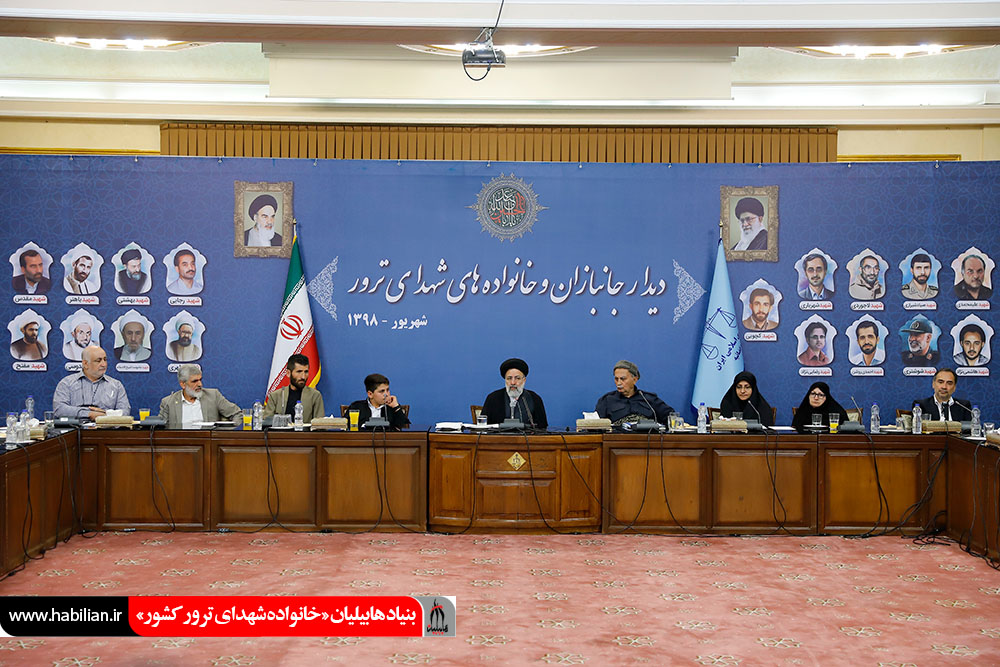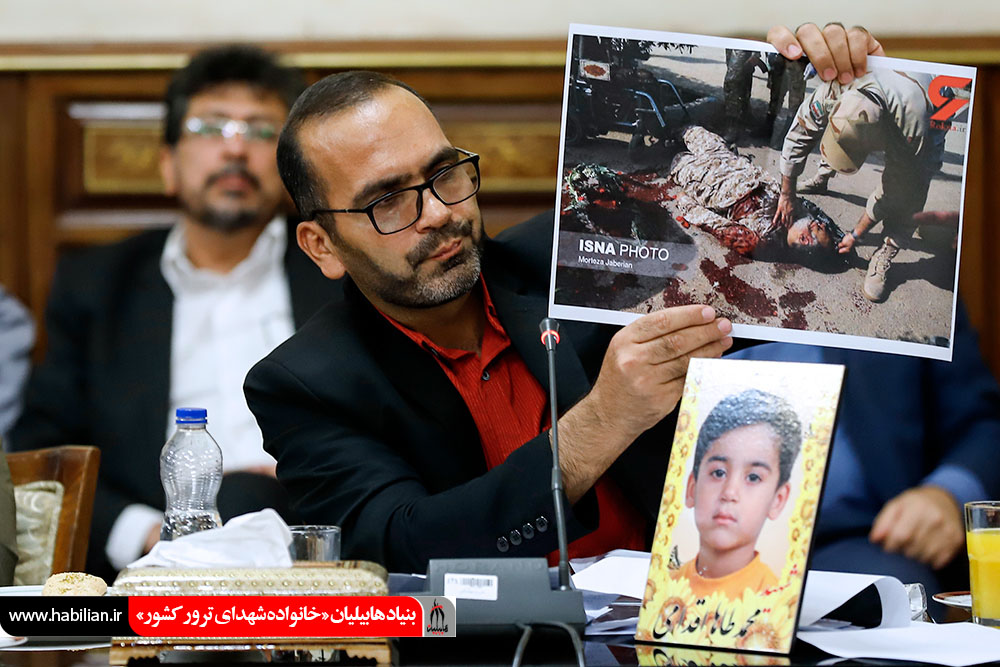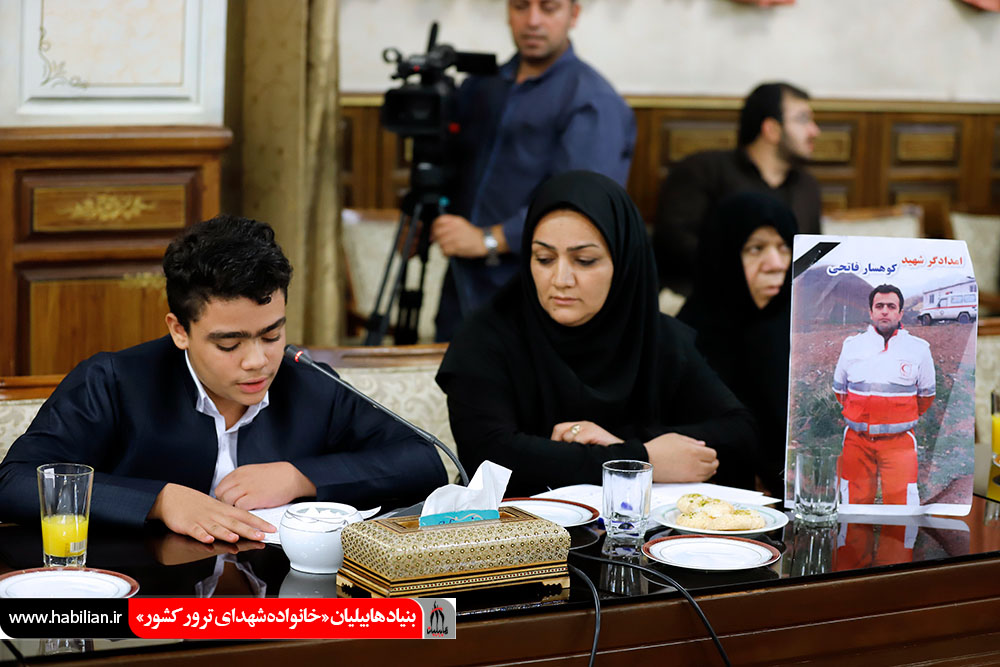
On the anniversary of the National Day for Combating Terrorism in Iran, the head of the Islamic Republic’s judiciary, Dr. Ibrahim Raisi, vowed to try terrorists whose hands are stained with the blood of the defenseless Iranian people.
According to Habilian website, the meeting brought together a number of families of martyrs and disabled persons of terrorist operations with the head of the judiciary, in addition to a number of well-known academic figures in the field of international law.
He said that the martyrs' families are the pillars of the Islamic Republic's strength in the world.
The head of the Judiciary expressed his thanks to the Secretary General of Habilian Organization and the son of Ayatollah Martyr Abdul Karim Hasheminejad for following up the affairs of the families of Iranian victims of terror as well as clarifying about the crimes of terrorist groups.
Raisi criticized the heads of states supporting terrorist groups in Iran, such as the Saudi regime. “The world must know that all these claims about human rights are a lie.” He said.

Questioning the cause to kill unarmed Iranian citizens by terrorists, Raisi said: “What is the guilt of the child who kills his father and what is the guilt of the young man who spends his life in the development of science? Why and with what sin do they shed the blood of these people?”
The head of the Judiciary called on all concerned Iranian authorities to focus on legal aspects of the victims of terror and required the Foreign Ministry, the judiciary and civil society organizations active in this field to deal with official international bodies to follow-up the complaints.
He also called on the Ministry of Intelligence, the Ministry of Foreign Affairs and the judiciary to work on collecting the required documents, saying: “Criminal responsibility for terrorist incidents rests entirely with terrorist groups. the Monafeqin (the Mojahedin-e Khalq) Organization and other terrorist groups are subject to criminal responsibility. A long indictment can be set up for them and urged the international community to deal with it.”
a number of disabled persons and martyrs of assassinations talked in this meeting about the martyrdom of their relatives and the difficult psychological results suffered by them after the loss of their loved ones. They also called on the head of the judiciary to open judicial files in the courts to file family complaints against the perpetrators of those attacks.

The speakers included: Zahra Lajevardi, daughter of the martyr Asadollah Lajevardi who was assassinated by the MKO; the handicapped Haydar Banai, who was targeted by the criminal group; the handicapped Mohammed Beit Salem of Ahwaz who and three members of his family were targeted by the MKO and becme completely disabled; the father of the martyr Muhammad Taha Aqdami, whose son was martyred in the Islamic State terrorist operation last year in Ahwaz; the father of the young martyr Klawej Mohammadi, who was martyred by the PJAK terrorist organization; the wife of martyr Dariush Rezaei Nejad, among the team of assassinated Iranian nuclear scientists; wife and son of the martyr Kohsar Fathi from the Kurdistan Region of Iran who was martyred by the criminal organization PIJAK, Sajjad Norouzi, media activist in the field of human rights and terrorism; and Dr. Reza Musazadeh and Dr. Tawakul Habibzadeh, professors of International Law.
At the outset of the speech, the Secretary General of the Habilian Organization Mohammad Javad Hashemi-Nejad, on behalf of all the families of the martyrs of terrorism in Iran, thanked the head of the judiciary for allowing the meeting and consultation, and briefed the human rights and legal activities of the Habilian Foundation to open lawsuits in domestic courts against terrorist groups.
